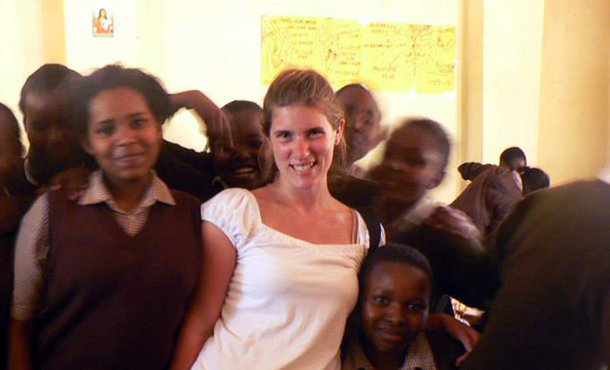Abby Pennington, a biology and education major, was exposed to a highly privileged educational experience and a highly deprived one – all in the summer before her senior year.
Going from a three week cross-cultural in Kenya to a ten-day educators’ camp funded by NASA, Pennington emerged hungry to bring experiential education to those who need it most. The camp was part of NASA’s “inSTEP,” a two-year program meant to teach the pedagogy of science, technology, engineering, and mathematics (STEM) concepts to a group of carefully selected future teachers. After her return from Africa, Pennington drove to Norfolk, Virginia, for the intensive classes held at NASA’s Langley Research Center.
Pennington had always thought that “you can’t learn science in the classroom. . . you learn science by experiencing it.” But after building solar-powered toy cars, hovercrafts, and discussing the Greek mythology behind astrology, she became aware of her full potential as an educator. The camp also included tours of NASA laboratories.
“I took a selfie with a rocket!” said Pennington. The 32 inSTEP participants also volunteered at a nearby YMCA, conducting short activities with Norfolk-area children about engineering concepts. Pennington’s group used straws and popsicle sticks as building resources in the face of a “big bad wolf” hair dryer.
“That got them thinking about different materials,” said Pennington. The activity centered around the context of local students who live in a coastal region rife with natural disasters.
Forty hours of volunteer work at an after-school program comprise the next phase of inSTEP, which Pennington will fulfill at the Harrisonburg Boys and Girls Club. She will teach lessons with a LEGO robotics kit and do one-on-one tutoring. In the summer of 2015, Pennington and the other inSTEP participants, viewed as the top preservice teachers in the state, will convene again at Norfolk to develop their professional portfolios.
Pennington garnered this honor after just one year of taking education classes as an EMU undergraduate. Previously, she was a student at Blue Ridge Community College, and transferred to EMU in 2013 as a chemistry and pre-med major. “I knew my calling was to help people,” she said of her journey settling into a field. When the rigorous academic requirements of applying to medical schools became too stressful, Pennington happened to be on the Peace Corps website when she saw a yellow banner proclaiming, “We need teachers!”
Pennington said she loves the philosophy of education. Who sets academic and curriculum standards? Why do many American students dread school? How can hands-on learning be better incorporated into teaching? These are the questions that Pennington hopes to answer in her career path.
She hopes to join the Peace Corps or a similar organization, using her educational skills in underserved areas abroad. She was impressed by the thankfulness of rural Kenyan students she visited on her EMU cross-cultural, who despite having few resources, held an excitement for school she has not observed in the States.
How, then, Pennington wondered, can she apply the experiential learning from inSTEP in an environment without disposable funding?
She feels troubled by the inequality that gifted each inSTEP participant with a $400 LEGO set, while students she visited in rural Kenya “were lucky if they had one textbook for the classroom. . . . Why is it that more privileged people should have a better education?”
Whether opportunity takes her back to Africa or elsewhere, Pennington is eager to be “somewhere where students need me.” She will feel rewarded not by a hefty salary and good benefits package, but work where she can best serve children: “They need me more than I need the money.”

Abby also plays the french horn in the EMU wind ensemble!